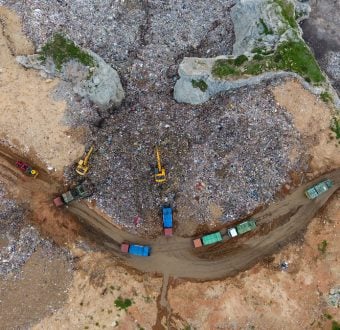Embedding Justice: Paving the Path to Racial Justice and Equity
Inside Out: Reflecting on Greenpeace USA’s Transformational Journey
Introducing the third annual 2024 Embedding Justice report by Greenpeace USA. In this report, we’ve structured our findings around nine key themes and values, reflecting the who, why, what, where, and how of Embedding Justice, based on our internal survey data and related materials.
The report delves into the essence of our commitment to embedding justice, highlighting our focus on belonging, power sharing, solidarity, community building, movement sustainability, disruption, discomfort, accountability, learning, and diversifying.
Click here to watch a call to action from our Justice & Equity Director, Geniro Dingle

Click here to download the PDF
Who we are:
Our Transformation
Currently, 53% of Greenpeace USA’s staff self-identify as BIPOC, and 48% of our management team does as well. Women make up 57% of our overall staff, with 5% identifying as non-binary and 38% as men. Our boards (INC & Fund) reflect similar diversity, with 8 women and 6 men serving as members.

Belonging
We cannot achieve our vision of environmental justice rooted in a green, just, and joyful future without aligning our values internally and externally. Whether we are working to ensure an equitable transition from fossil fuels or seeking to end the disposal of plastics in our oceans, we need to understand how our ecosystems and movements are entangled with institutionalized racism, colonialism, misogyny, homophobia, transphobia, ableism, and economic inequalities.
This is why embedding justice is core to who we are, what we are doing, where we are going, and how we are getting there.
Power Sharing
Movements for justice are fueled by collective action. Outrage over corporate destruction of green spaces and despair over Indigenous displacement unite us in our environmental defense. However, true belonging and togetherness are hard-won. We’ve often spoken for affected communities instead of working with them, causing alienation through racism, misogyny, transphobia, and economic exclusion. Challenging these power dynamics requires co-creating campaigns with impacted communities, building long-term trust, and elevating their voices, even when it’s uncomfortable.
Solidarity & Community Building
Solidarity is core to building our communities. Solidarity requires ongoing reflection on power and privilege. It’s more than just a claim of shared purpose or a feel-good term. Solidarity is work. We encourage people to take action and support affected communities. Solidarity is the glue that holds our communities of action together.
Movement Sustainability
Environmental movement sustainability requires we embrace conflicting audiences. Some workers in manufacturing or mining zones resist environmental politics because they are anxious about the loss of employment opportunities if extractive industries change. This is why a just transition is critical to what we do – we cannot achieve lasting environmental change if our movement ignores inequalities that result in increased pollution, poor labor conditions, and limited economic opportunities.
Disruption
Embedding justice within our organization is vital to our social responsibility to each other and our role in the broader green movement. By confronting injustice and disrupting the internal status quo – recognizing how racism and entrenched oppression impact our campaign goals and work environments – we enhance our ability to do the same externally. Understanding the world through multiple perspectives requires us to respond from multiple angles.
Discomfort
Our campaign successes reflect our ability to sit with intersectional discomfort – understanding how we might be empowered or disempowered depending on the spaces we occupy – and use it as a driver to question and challenge the status quo.
Accountability
Accountability for us involves understanding the motivations of our members, staff, and supporters and how they align with the needs of those most affected by environmental injustices. This demands dialogue between and across different parts of our movement; not only about what causes we take up, but also how we work on them. We are responsible for embedding justice across all levels of our movement.
Learning
Our understanding of embedding justice has evolved since our first report in 2022. Initially, we recognized the need for Greenpeace USA to actively work harder at being anti-racist. We realized that focusing solely on increasing representation wasn’t enough. We envisioned a future where our commitment to centering people empowers all Greenpeace USA staff.
Diversifying
The work we do to diversify our organization and supporter base does not happen overnight. The seeds of our embedding justice work – and our evolution into an organization that reflects the diversity of the world we operate within – were planted decades ago. Today, we strive to increase representation in our direct action, which is a key area where the world sees the many faces of Greenpeace USA.
Closing remarks by our Executive Director, Ebony Twilley Martin
“We are taking our culture of direct action, the same principle on which Greenpeace was founded and championed, to diversity our community by building stronger connections and having deeper conversations with our activists and partners across the movement. We are taking the insights and lessons from 2023, 2022 – and our equity work before the pandemic – to make 2024 and beyond a just space for all of us.”
Stay tuned to see how GPUSA will be continuing advancing racial justice and building people power in our upcoming internal as well as external campaigns.


